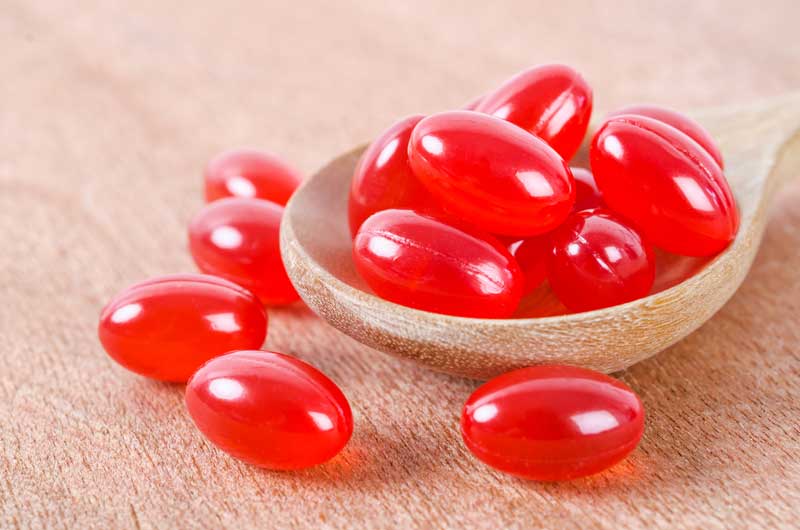Fertility is a deeply personal journey, and many people search for evidence-based ways to improve their chances of a healthy pregnancy. One supplement that has gained significant attention in recent years is CoQ10. Known for its role in energy production and as an antioxidant, CoQ10 has been studied for its potential benefits in egg and sperm quality. Let’s explore how CoQ10 works, what the research suggests, and practical considerations if you’re thinking about this supplement as part of your fertility plan.

What is CoQ10?
CoQ10, short for coenzyme Q10, is a naturally occurring antioxidant and an important coenzyme in vitamin E metabolism. Its primary role is in energy production within the mitochondria—the powerhouse of the cell. Since the body depends on healthy mitochondria for repair, growth, and division, CoQ10 plays a direct role in maintaining overall cellular health.
As we age, mitochondria become less efficient. This decline contributes to the cellular damage commonly linked to aging. Inflammation and oxidative stress can speed up this process, affecting not only general health but also fertility. By supporting mitochondria, CoQ10 helps cells function efficiently and reduces damage caused by oxidative stress.
Why Mitochondria Matter for Fertility
Every cell in the body requires energy, but reproductive cells—eggs and sperm—are especially sensitive to mitochondrial health. Poor mitochondrial function has been associated with DNA abnormalities, which can affect both egg quality and sperm quality.
- Eggs: Women are born with all of their eggs, and these eggs accumulate damage over time. Stable mitochondria are critical in ensuring proper cell division, which is essential for egg quality and chromosome stability.
- Sperm: Unlike eggs, sperm are produced daily in large quantities. Sperm are fragile and highly sensitive to oxidative stress. When inflammation or oxidative stress is high, sperm concentration and motility can decrease. Supporting mitochondrial health through CoQ10 can improve sperm parameters and overall reproductive potential.
The Role of CoQ10 in Fertility
Over the last decade, studies have shown growing evidence that CoQ10 supplementation can support fertility outcomes. Research highlights several benefits:
- Improved IVF outcomes including better embryo quality
- Increased number of mature eggs in ovarian stimulation
- Higher likelihood of genetically normal embryos
- Enhanced sperm motility and quality
While not a “magic pill,” CoQ10 can be a valuable addition to healthy lifestyle practices such as good sleep, balanced nutrition, and reducing exposure to toxins.
Recommended Dosages for Fertility
Fertility studies have suggested specific CoQ10 dosages depending on whether it is used to support egg or sperm quality:
- For egg quality: 400–600 mg daily
- For sperm quality: 200 mg daily
These dosages are based on research within fertility studies. It is always important to consult your healthcare provider before starting any supplement, especially if you are taking medications. For example, CoQ10 may interfere with anticoagulants like Warfarin.
Food Sources of CoQ10
In addition to supplements, CoQ10 is found in many dietary sources. Both plant-based and animal-based foods can provide this nutrient. Common examples include:
- Fatty fish and organ meats
- Spinach, broccoli, and cauliflower
- Fruits such as strawberries and oranges
- Legumes including soybeans and lentils
- Nuts, seeds, and whole grains
- Vegetable oils
Studies indicate the body can use CoQ10 from both supplements and natural food sources. Including these foods in your diet can be a complementary way to support fertility.
Lifestyle Factors and Fertility Support
CoQ10 is one piece of the fertility puzzle. Other lifestyle habits also play a major role. Healthy practices such as reducing inflammation, avoiding toxins, ensuring adequate sleep, and following a nutrient-rich diet make a significant impact on reproductive health. CoQ10 works best as part of a comprehensive approach to improving fertility.
Conclusion
CoQ10 has moved from being overlooked to becoming a well-researched supplement in the field of fertility. By supporting mitochondrial function and reducing oxidative stress, it may help improve egg and sperm quality, thereby contributing to better fertility outcomes. Whether taken through supplements or included in the diet, CoQ10 offers a safe and effective option for many individuals navigating their fertility journey. Always remember to consult your doctor before starting supplementation to ensure it is appropriate for your individual needs.
